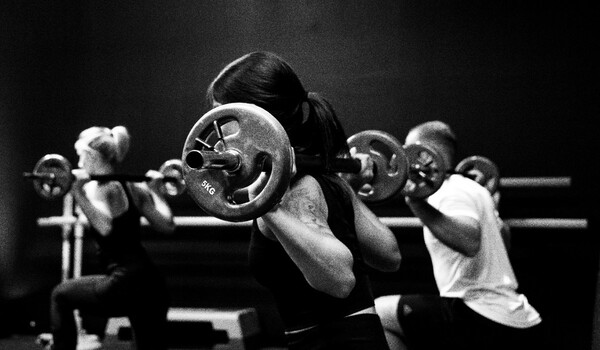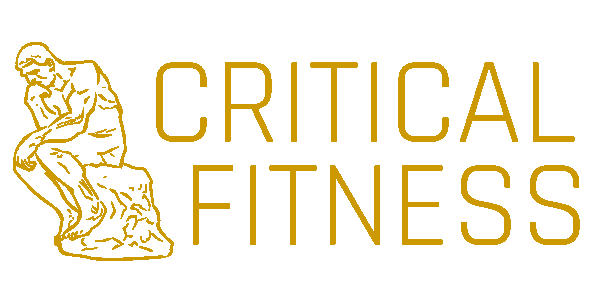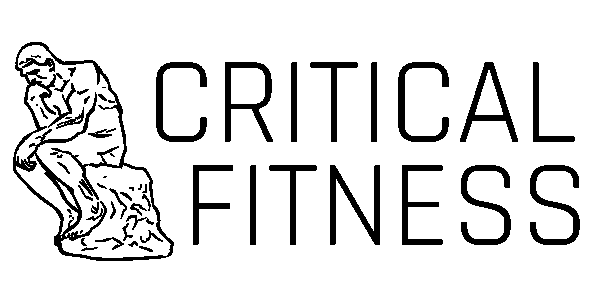As personal trainers (or group fitness instructors) we can panic a little when we start training a pregnant woman. Not because we can’t train them safely. But because we worry more about training them safely.
We don’t have many pregnant clients, so we fret about some of the details. How does the client’s aerobic capacity change? How does her flexibility change? What intensities can she tolerate? What exercises are comfortable? There’s just more to think about.
Exercise should be encouraged during pregnancy. It has plenty of health benefits, for both the mother and the child.
But one of our major challenges as a personal trainer is getting any of our clients to stick with their exercise. And this can be even harder for our pregnant client when she is getting bigger by the week, her exercise capacity is reducing, and sometimes she doesn’t feel very well!
Our clients are more likely to stick with us if we meet their expectations about exercise. And of course, this exercise adherence is the most important factor in the results our clients will achieve. Not all the details about what exercises, how heavy to lift, what heart rates to reach, etc. But if they stick with it. After all, there’s no point planning the perfect training session if our clients don’t do it!
So, what do pregnant women want from their fitness instructors? What will keep them coming back to train with us? New research from Portugal asked this exact question.
How was the research conducted?
Women in Lisbon, in their second trimester of pregnancy, participating in group exercise, were surveyed. They were asked to rate the importance of a series of qualities of fitness instructors.
The survey items could be divided into two broad categories. First, the relational qualities of the instructor, like their mood, empathy, honesty, humility, etc. Second were technical qualities, like session planning, knowledge, execution of exercises, etc. Their ability to teach skills well, and adapt to something unexpected in sessions, were also included as technical qualities.
What was important to the pregnant women?

In general, relational qualities were rated as more important that technical qualities.
We need to be careful not to get too carried away, because this data wasn’t analysed statistically – the paper only reports the average ratings for each quality. And recruiting women to participate wa surely difficult, so we only have 30 responses. Some of the differences we see could be just the natural variation when asking different people for their opinions.
But mostly importantly, the women surveyed in this research thought that fitness instructors should be ethical and communicate well. They also wanted them to be on time, motivated, dedicated, and available.
What about the technical skills?
Some technical qualities that rated highly. Good knowledge was considered important, as were instructional skills, and the ability to adapt during a session. But these didn’t rate any higher than the relational qualities identified above.
Maybe trainers who lack confidence in this area will breathe a little sigh of relief, but it doesn’t mean that good knowledge isn’t highly valuable.
Degree qualified trainer Brooke Turner, who provides education for fitness professionals in exactly this area, and is a mother herself, suggests that this may be due to the public not understanding the differences between trainers:
Many assume that fitness instructors and personal trainers have a base level of knowledge on exercise for pregnancy & post-partum. They may not realise that this is in fact a specialist skill and area of professional development.
In a perfect world all trainers would be equally skilled in this area. And AUSactive, the peak body for exercise professionals in Australia, provides guidance for fitness professionals in this area. But there are huge differences between professionals. In fact, many trainers struggle to give basic, evidence-based advice to any women, let alone pregnant women!
Brooke thinks this knowledge is important for getting the best possible outcome for pregnant and post-partum clients. She also identified the importance of collaboration:
When fitness professionals lack these technical skills, they often lack the knowledge of other support available. They may not realise they could refer to a women’s health physiotherapist, or work with appropriately qualified trainers who can provide more detailed pre-exercise screening, and potentially more suitable, specific exercise options.

What was not important to pregnant women?
While as mentioned above, technical qualities tended to rate lower, there are some standouts here. I’m going to discuss some highlights.
Pregnant women don’t care how their instructor looks, or how fit they are
Isn’t this refreshing!? They want a professional, ethical, motivated instructor. They don’t care if they look fit or not! When research into other groups shows time and again that how a personal trainer looks has a large impact on how much they are trusted, this fills me with hope. Brooke agrees:
It is positive to see that image and fitness level of the exercise professionals was of lower importance. Often there can be pressure on fitness professionals, be it real or perceived, to look a certain way to be successful in the fitness industry. Amazing trainers come in all shapes and sizes.
Good looking influencers will be up in arms about the importance of setting a good example, inspiring clients, and looking the part… blah, blah, blah. But it doesn’t matter. They’re wrong.
As we’ve discussed previously, the response to exercise we see is so variable, we don’t know that someone who looks fitter and stronger is actually training harder or smarter than anyone else. We need to stop giving people credit for winning a genetic lottery.
Music doesn’t matter
Some group exercise instructors will spend a lot of time getting this right, thinking about the pace and style of the music, and matching it to the group. But unless you are really off the mark, it probably isn’t a major factor.
Years of experience doesn’t matter
This is interesting! We usually assume that someone who is more experienced is more knowledgeable, and more skilful. But this isn’t always the case.
In fact, research has shown time and again that a more experienced professional is not more knowledgeable than a new professional, on average. They may have more knowledge. But they may have spent 20 years getting bad information from poor sources, it’s hard to see how that will make them better at anything.

What does all this mean?
There’s no doubt we need the technical knowledge to be able to deliver safe, effective exercise sessions for pregnant women. They are a group with different needs to the general population, which we need to consider.
But this isn’t enough. To really be successful, you need to:
- Be professional: be ready for your session on time, speak and behave like a professional, meet deadlines, and follow through on your commitments to the client.
- Be ethical: by operating within your scope of practice and treating people with respect (whether they are your clients, other professionals, or other gym users). AUSactive has a code of ethical conduct I can strongly recommend.
- Be dedicated and motivated: your client knows when you don’t want to be there. A great trainer can fake it, but it’s easier if you want to be there and do a good job for your clients!
- Be available: make time before and after sessions to chat to your clients and answer any questions they have. Be responsive to phone calls, texts, and emails. And be friendly, inviting this communication from them.
- Be adaptable: crowded gyms, unavailable equipment, sudden changes in weather, or just the client feeling nauseous or having an ache that day. All these things mean we must think on the fly. React quickly to keep the session rolling and achieve what we need it to.
All this sounds very simple, but lots of trainers don’t meet these standards. I’ve taught plenty of students who don’t like training other people… who struggle to be on time for a session… who finish a session early because they can’t think of any adjustments or additions.
Want to stand out from 90% of other trainers? Just do this! If you have decent knowledge as well, even better!
Summing up
I hope you find this information encouraging. While it’s important to be an intelligent, knowledgeable trainer, don’t obsess about it. It isn’t how much you know that makes you stand out.
I’ll leave Brooke with the last word:
Relatability is what I believe to be a crucial quality in fitness professionals, as reinforced in these findings. The ability to build rapport, foster a supportive and motivating environment, relate to their clients, and adapt and make exercises relevant, are key.



Recent Comments